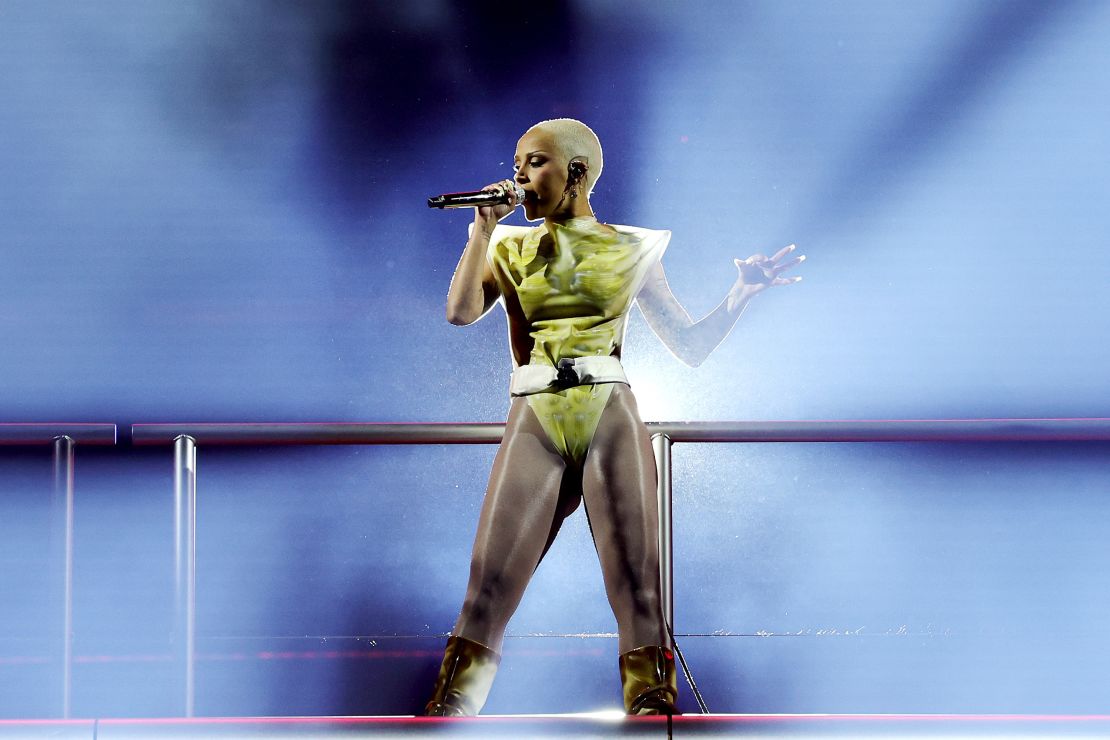Starting over a decade ago with YouTube covers under her real name, she began her music career before securing a record deal straight out of high school. Her debut single, “Pink Pony Club,” was launched in 2020 amid the Covid-19 pandemic. Her album, released nearly a year ago, received positive reviews and built a devoted but modest fanbase.
In the past six months, her career has surged dramatically. Notable appearances, including NPR’s Tiny Desk and Coachella, helped her reach new audiences. Her tracks “Good Luck, Babe!” and “HOT TO GO!” gained widespread popularity on TikTok. Her remarkable summer culminated in a historic performance at Lollapalooza, where her audience swelled to approximately 110,000 people.
Roan has recently struggled with the pressures of sudden fame, and her discomfort reached a breaking point earlier this week. On TikTok, she posted two videos criticizing invasive fans who have followed her, harassed her family, and demanded photos or hugs despite her attempts to decline.
In one video, she stated, “I don’t care that abuse and harassment, stalking, or whatever, is considered a normal part of being famous or semi-famous. It’s strange how people think they know you just because they see you online and listen to your music. I’m allowed to reject inappropriate behavior.”
On Friday, she expanded on her remarks in a detailed Instagram post, emphasizing that she disconnects from her public persona when not performing and does not owe anything to those who approach her during her private time. While she values making music and appreciates the support from respectful fans, she made it clear that she will not tolerate harassment, despite choosing this career path.
“I feel more love than I ever have in my life,” she wrote. “I feel the most unsafe I have ever felt in my life.”
It’s a real paradox, isn’t it? Fans are obsessed with Chappell Roan’s genuine, no-holds-barred authenticity, which apparently inspires some to take the leap from adoration to full-blown invasion. Sally Theran, a psychology professor at Wellesley College, offers a gem of insight into why Roan’s unfiltered self is so irresistible. “She’s refreshingly real and doesn’t play by the old celebrity rules. She does her own thing,” Theran explains. “In a world full of manufactured personas, that’s bound to be appealing.”
Roan’s straightforwardness online might give some fans the delusion that they truly know her and, by extension, that she’s just dying to get to know them. “I think that’s really what she’s trying to say: ‘I’m performing here. It doesn’t mean you know me or I know you,’” Theran adds. But, of course, fans often misunderstand this and think she’s actually inviting them into her personal space.
In this age where social media turns everyone’s life into a public spectacle and every candid moment goes viral, it’s not surprising that the lines between celebrity and fan have blurred. Roan’s recent experiences are a stark reminder of the fine print of fame: being open and relatable online sometimes comes with the unexpected bonus of unwanted invasions into one’s personal life. The price of being genuine? Apparently, it’s a hefty dose of unwelcome attention.

